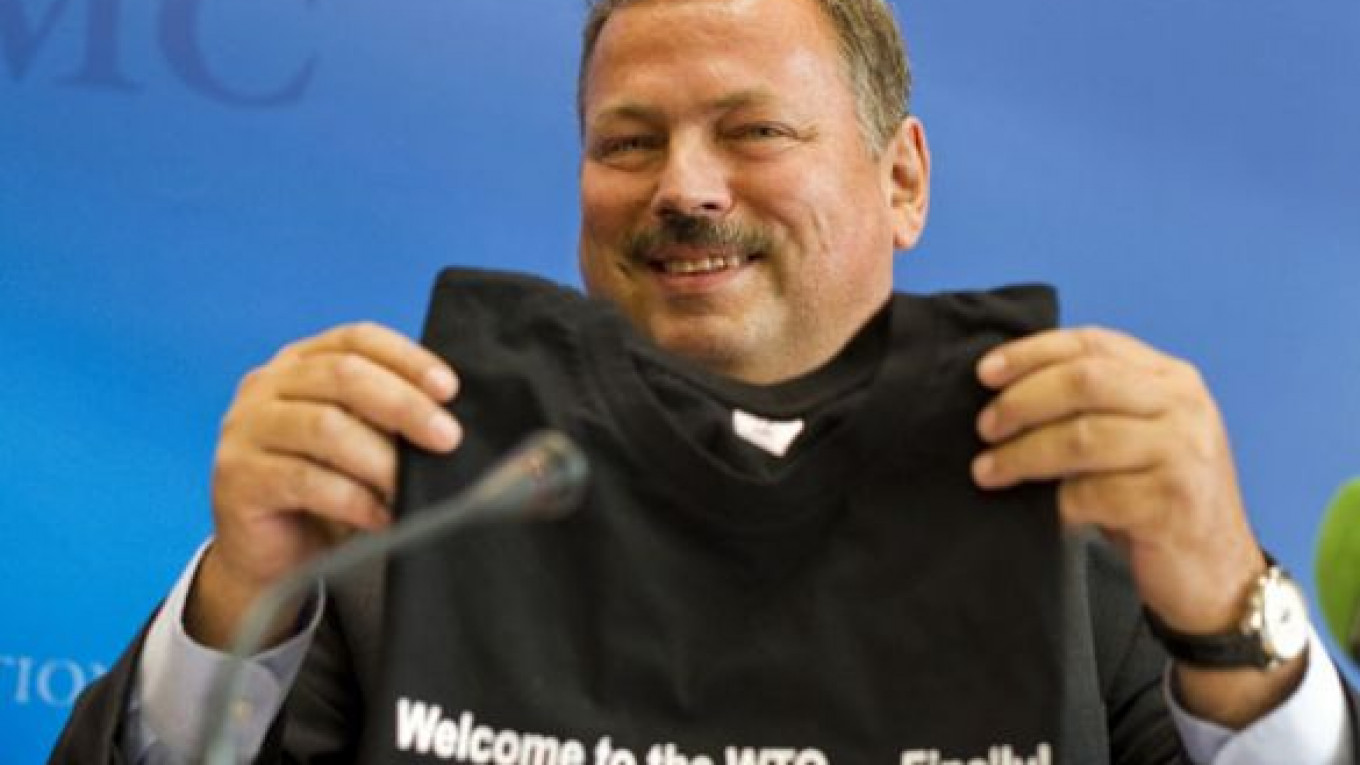Accession to the World Trade Organization is generating minimal short-term economic gains for Russia, and the long-term benefits are exaggerated, ING Bank said.
Russia's entry into the WTO after 19 years of negotiation was like joining a "Premier League team, where success depends on interaction with other players and adherence to internal rules more than anything else," ING Bank economists said in a report for investors e-mailed Monday.
And new customs data from September suggest that there has not been a flood of foreign-made goods crossing the border, despite lower import tariffs mandated by accession.
The average import tariff will fall from 10 percent to 7.8 percent as a result of the country's joining the WTO. One-third of these cuts are already in place, and another quarter are to be implemented within three years.
No significant month-on-month increase in imported goods, including textiles, footwear and cars — all expected to be boosted by tariff cuts — has been visible since accession on Aug. 22, according to research by the Eurasian Economic Commission, RIA-Novosti reported Monday.
Some exceptions to this trend were a month-on-month 16 percent uptick in pork imports, a 50 percent increase in vegetable oil imports and a 23 percent jump in dairy imports.
But consumers should not expect lower tariffs to lead to lower prices, ING Bank said, because inflation and profit-taking are likely to bite.
"Nearly two months after the accession, there have been no visible positive price effects so far," the bank said.
Expectations for a macroeconomic stimulus to the economy are likely to have been exaggerated, the investment bank's report states.
Estimates of gross domestic product gains of between 3 and 11 percent were unrealistic because they are premised on the "questionable assumption" of sharp reductions to the barriers to foreign direct investment.
Assuming a slower pace of services liberalization, WTO accession could add just 0.5 percent to GDP growth in the short term and 1 percent in the long term, ING said.
Related articles:
A Message from The Moscow Times:
Dear readers,
We are facing unprecedented challenges. Russia's Prosecutor General's Office has designated The Moscow Times as an "undesirable" organization, criminalizing our work and putting our staff at risk of prosecution. This follows our earlier unjust labeling as a "foreign agent."
These actions are direct attempts to silence independent journalism in Russia. The authorities claim our work "discredits the decisions of the Russian leadership." We see things differently: we strive to provide accurate, unbiased reporting on Russia.
We, the journalists of The Moscow Times, refuse to be silenced. But to continue our work, we need your help.
Your support, no matter how small, makes a world of difference. If you can, please support us monthly starting from just $2. It's quick to set up, and every contribution makes a significant impact.
By supporting The Moscow Times, you're defending open, independent journalism in the face of repression. Thank you for standing with us.
Remind me later.


